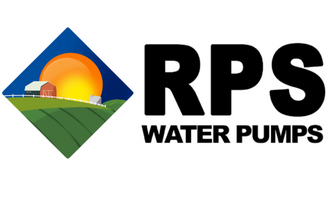On occasion customers will call me up and tell me they’ve got a great, high-producing well. We chat for a bit, and I ask them “how many Gallons per Minute are you hoping to get?” They end up telling me they want to maximize their production, but then later on say they’ll be using the water for a small household and maybe some landscaping. It’s at this point that I normally ask them if I can send a couple different quotes; one that maximizes their pump’s production and another that maximizes their value.
Let me clarify what I mean by that. If you’ve just finished drilling a well on your property and the well technician gives you a production value of 50 GPM, it sounds like a great idea to maximize your pumping output, right? If you can get 50 GPM without needing to worry about the well being over-pumped, why not put down a larger pump? What I often tell customers is that, besides a higher price, if you think about it, 50 GPM over a 24 hour period is 72,000 gallons of water. In contrast, the standard American household uses about 50-100 gallons per day on the less conservative end. And if you’re just pumping to a standard pressure tank, all that 50 GPM pump is doing is refilling your pressure tank at a faster rate than normal.
This is one example of how a well pump can (in my opinion) be too powerful. WIth an extremely oversized pump like above, you’re dealing with increased initial and service costs for a benefit that isn’t really necessary unless you’re trying to do something like fill a pond or irrigate a couple of acres of landscaping. And if there’s ever some sort of leak or issue where the pump is continually running, 50 GPM has the potential to be far more hazardous than lets say 10 GPM.
I’m not saying never oversize. If you’re on the fence between a 5 GPM or 10 GPM pump, I’ll normally recommend that customers size up rather than down, unless they’re on a strict budget. You want to do what you can to maximize comfort, and at the end of the day it feels better to have a little too much water than a little too little. But there comes a point where it just doesn’t make sense outside of some specific scenarios.
Another thing to keep in mind, what if you don’t know your well production values? We’ve discussed ways to determine production values previously, but if you don’t have this capacity it’s better to be conservative and only pump what you need. In the same vein, maybe you know your well production values but your well is low-producing. We recommend pairing well production with pump GPM, so for example a 20 GPM pump should not be your first choice for a 5 GPM well. If you did that you would outpump your well, your water level in the well would drop and the pump would have to push against gravity to a higher degree than what your specialist would have measured. As a result GPM and/or PSI levels could drop, and in the worst case scenario the water level would drop so much that air gets into the pump intake. That’s something we want to avoid.

As a general rule then, I do my best to talk to my customers about capacity vs. value. You want to maximize your capacity where possible, especially in the case of a low-performing well. That could involve pumping into a storage tank with a second EcoSteady Booster Pump providing pressure directly to your household. In this example you would always have plenty of water aboveground in your storage tank in case of an emergency. On the other hand, if you have a high capacity well how do you maximize the value of the pump you’re putting in? Sizing up is great, but it’s a personal choice you need to make yourself as to where it becomes more of a hassle than it’s worth.




